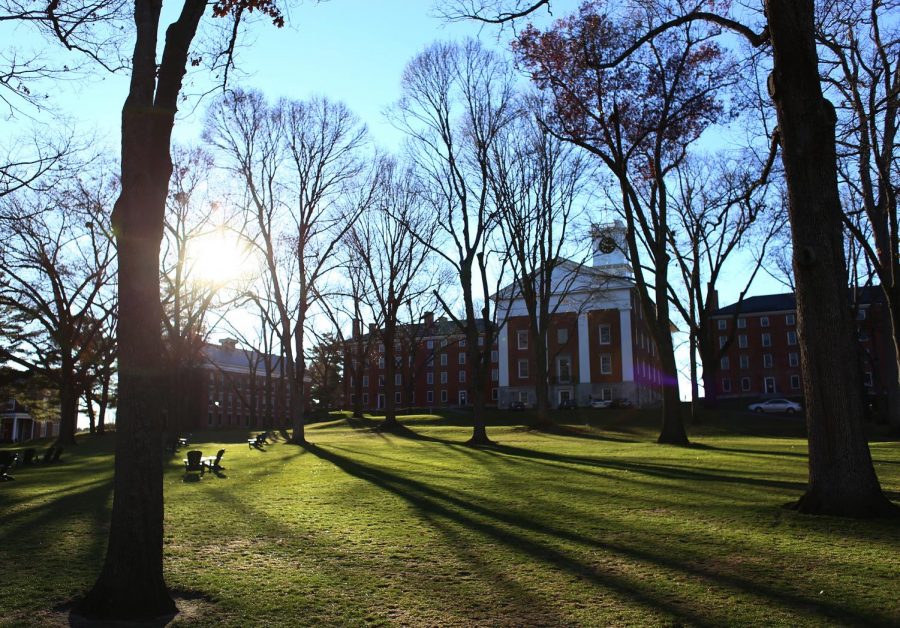On Thursday evening, the Center for Humanistic Inquiry at Amherst College hosted the president of University of Maryland Baltimore County, Dr. Freeman Hrabowski, to discuss his book “The Empowered University: Shared Leadership, Culture Change and Academic Success.”
Hrabowski is an author and scholar in STEM diversity who also wrote “Holding Fast to Dreams,” “Overcoming the Odds” and “Beating the Odds.” In addition, Hrabowski gave a TED talk regarding the four pillars of college success.
At the age of 12, Hrabowski marched with Martin Luther King, Jr. and was arrested at the Birmingham Children’s March. Today, at UMBC, he works toward helping minority students get degrees in STEM. He has also helped women get into STEM through the Advanced Program for Women in Science, which has been put in place at UMBC.
In his talk, Hrabowski presented many reasons for why minority participation in STEM needs to be a focus for all presidents of higher education institutions. According to Hrabowski, 5 percent of all degrees nationally are from natural sciences and engineering and that up to 70 percent of these are from foreigners.
One of the reasons for this low number, Hrabowski said, is the high drop rate for these degrees. 32 percent of white students that start in STEM graduate in STEM. Comparatively, this number is 20 percent for minorities and 41 percent for Asians.
Hrabowki’s newest book assesses the successes and challenges faced by universities on this issue and reflects on how to improve inclusivity and empowerment on campus.
Quoting Aristotle, Hrabowski said “choice not chance determines destiny” and he noted this choice is not only on an individual level but also on a structural level. He also argued that while “we have desegregated most campuses, we haven’t really integrated.”
Sheila Jaswal, a professor at Amherst College, aim to contribute to the structural change that Hrabowski is proposing with her class Being Human in STEM. The course “aims to foster a more inclusive, supportive STEM community by helping students, faculty and staff collaboratively develop a framework to understand and navigate diverse identities in the classroom, lab and beyond,” according to the course’s website.
This class began after a four-day sit-in student protest in 2015 called “The Amherst Uprising” regarding the marginalization that students of color feel in STEM. Following the protests, Jaswal asked students about what would help better their experience in STEM and from this arose the class Being Human in STEM.
At the event, both students and staff members of Amherst College were in attendance. Lisa Stoffer, who was present at the event, seeks outside funding for research as the director of the Amherst College Grants Office. Stoffer said a major focus for the Amherst College Grants office “is to fund the sciences and inclusive excellence in the sciences.”
Hrabowski argued a similar sentiment in his lecture: “If we want to give science the support that it needs to be given, we need science to look like the face of America.”
Evelyn Rodriguez can be reached at [email protected].



















